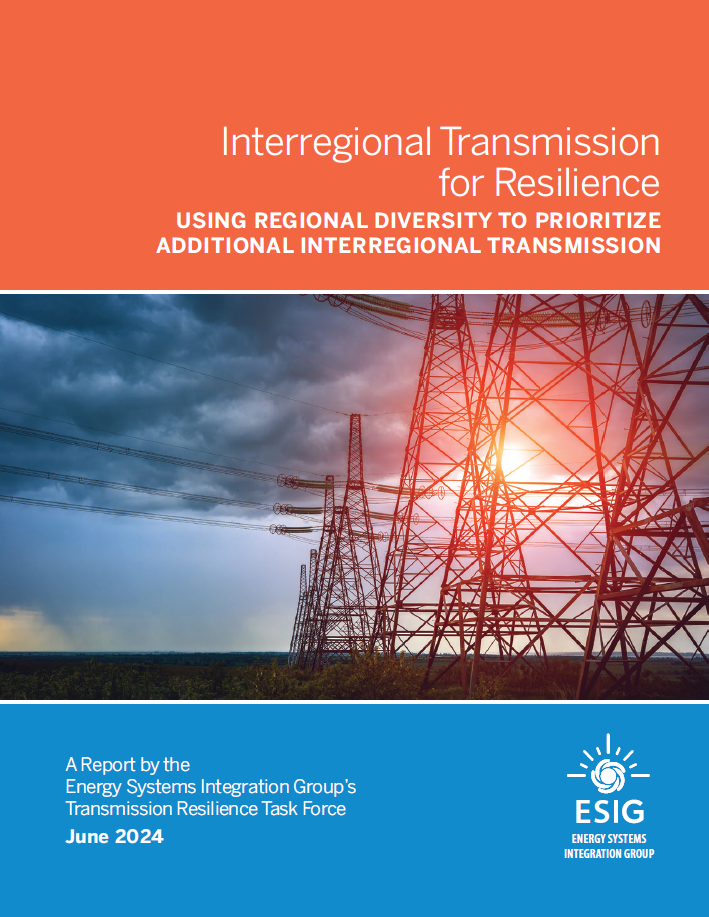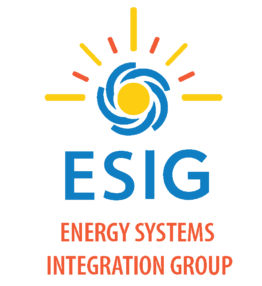 This report, Interregional Transmission for Resilience: Using Regional Diversity to Prioritize Additional Interregional Transmission, sets forth a methodology for assessing where additional interregional transmission capability can provide the greatest benefits for system resilience.
This report, Interregional Transmission for Resilience: Using Regional Diversity to Prioritize Additional Interregional Transmission, sets forth a methodology for assessing where additional interregional transmission capability can provide the greatest benefits for system resilience.
There is a growing need to ensure that electricity systems remain robust and adaptable in the face of future load growth, a changing resource mix, and a changing climate. Interregional transmission improves grid resilience by allowing regions to access diverse resources in neighboring regions not affected by the same weather and load conditions. But despite the potential benefits, current planning processes often overlook the resilience value of interregional transmission, focusing on local reliability solutions within only a small geographical region.
This study provides a nationwide assessment of current interregional transmission capability and offers planners a framework for (1) assessing transmission’s adequacy and resilience benefits at a national scale, and (2) prioritizing transmission investments that offer the greatest benefits for system resilience.
The methodology proposed calculates an hourly energy margin for every region in the U.S., taking into account hourly available capacity and hourly loads, to assess each region’s ability to import or export power to its neighbors. The methodology can be used to meet an individual planning region’s needs and can also inform national efforts to assess resilience benefits from interregional transmission.
The report also includes a case study applying this methodology to determine how much additional interregional transmission would be needed for every U.S. region to be able to import 10%, 20%, and 30% of its peak load. To determine where additional interregional transfer capability should be added, a model was developed using a priority dispatch order in which a region first uses its own resources, then resources from its immediate neighbors (if they have surplus), and, lastly, resources from neighbors’ neighbors. This methodology can be used to identify which neighboring regions would typically have deeper surplus at times when a given region is experiencing grid stress.
The method is designed to be practical and adaptable to current planning practices, allowing for broad nationwide assessments, across all hours of the year and across many weather years and different resource mixes, applicable on both a regional and a national scale.
This study underscores the need for a robust, national-scale approach to grid resilience. It provides a modeling and strategic framework for leveraging interregional transmission and regional diversity to improve the reliability and adaptability of the U.S. electric power grid in response to severe weather events and a changing energy landscape.



